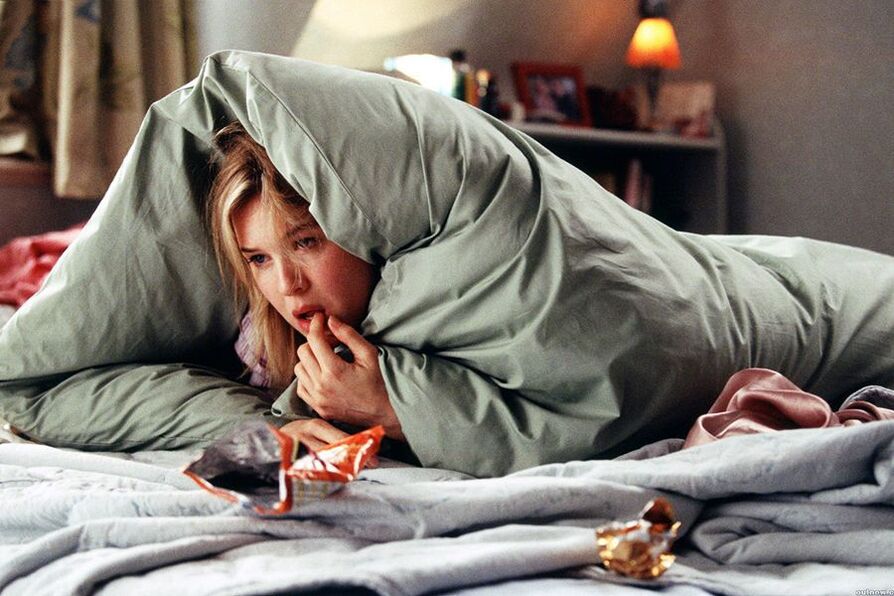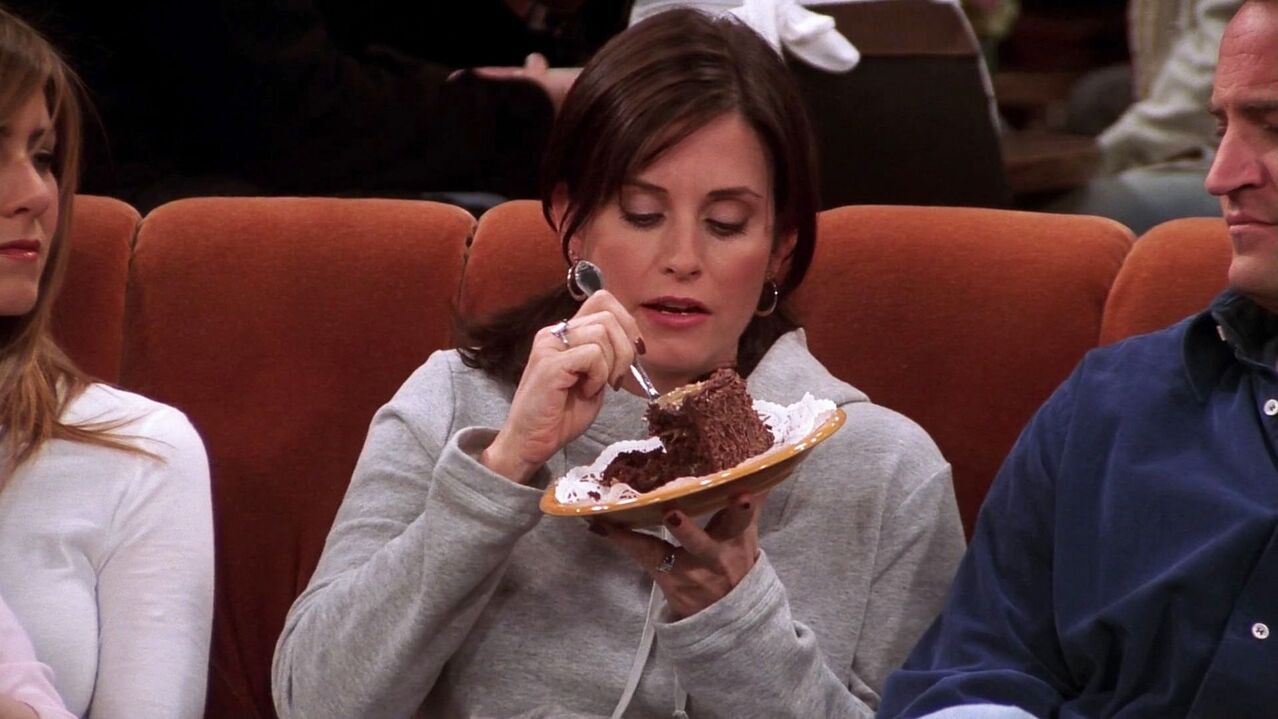
The title contains popular queries in search engines. But this article won't offer advice like "count to 10 and drink a glass of water. "A little more: why forcing yourself not to eat to lose weight is a bad idea, and what to do with your attitude toward food.
What's wrong with not eating to lose weight?
Practicing Psychologist: If you have a healthy attitude towards nutrition, then you are in touch with your body - you hear its signals and know how to negotiate with it. If your body signals hunger, you satisfy it; when you're full, you stop eating. The "don't eat to lose weight" message means breaking that connection, confrontation with yourself and manifestations of self-aggression. It turns out that in order to achieve your goal (weight loss), you are taking steps against yourself. bad situation○dull unhealthy○exist.
Psychiatrist: Most people who lose weight on a diet will regain their weight within 1-2 years. Also, 2/3 of them gained more than they lost.
Endocrinologist:The message of forcing yourself not to eat in order to lose weight is unreasonable. It's important to understand: what happens to the body? Maybe it's not a diet problem, but a hormonal problem.
What the heck is this - a healthy attitude towards food?
Psychiatrist: This is when normal meals and snacks are not accompanied by anxiety, shame, and guilt. Lack of "fasting", dieting and calorie counting. When you allow yourself to enjoy the food.
Endocrinologist:It's about seeing food as a condition for a fulfilling and happy life. not as a substitute for happiness and joy.
Practicing Psychologist: It's eat when you're hungry, stop when you're full, don't focus on your body's shortcomings, you have to "correct" or reject it with food, don't hold onto emotions when you're not overeating.
Can you provide more details? How and why do we devour emotions?
Practicing Psychologist: There is no good or bad mind, and any emotion can be dealt with. She doesn't need food, alcohol, gadgets or TV. But in some cases, a person floods his emotions with food. Distraught, I had a bowl of ice cream - it just got easier. His behavior is positively reinforced, and the person begins to employ this tactic again and again.
Psychologist:Many times, people overeat because they lack rest. Let me give you an example. A young woman asked a question: She ate a lot at night and couldn't help herself. Turns out she works for three because she doesn't turn down colleagues. No time for a bite: business all the time. She can't eat at night. That is, a person drains oneself, overworkes oneself, and is constantly under stress. How to replenish lost energy? Burgers, potatoes, chocolate.
It turns out that if a person eats when they are bored, anxious, angry, tired or sad, is it wrong?
Psychologist: On its own, this is neither good nor bad: food is unknowingly associated with safety. For newborns, food is not just food, but closeness, calmness, confidence, acceptance, love, communication with mom. Adults also sometimes eat to calm themselves down. It sucks when that's the only way to deal with anxiety or fear.
Psychiatrist: Satisfy different psychological needs through food. For example, having dinner with family members is an intimacy. Going to a restaurant with friends can eliminate the need for social interaction. The problem arises when food becomes the crutch of our negative experiences. This brings us to the topic of eating disorders (EIDs) or eating disorders. Psychiatry deals with these issues.
etc! It turns out if I eat a chocolate bar after get off work and feel guilty - is it already a disease? Should I go straight to a psychiatrist?

Practicing Psychologist:complicated question. In some cases, a person eats while running, gets confused, and doesn't pay attention to what he eats. Or he eats when he's not really hungry - out of boredom or for company. It may just be an eating disorder that can be corrected by a dietitian. But, at the same time, eating outside of hunger is one of the symptoms of RIP. The line is very thin. Only a doctor can be sure. In our country, there is a psychiatrist who does this.
Endocrinologist:It happens that a person is often sad, worried, tired - and catches on to these problems. Maybe it's the result of constant stress. But they are also symptoms of endogenous depression and anxiety neurosis. Psychiatrists are also involved in diagnosing such disorders.
But not ERP - bulimia and anorexia? Symptoms are difficult to confuse
Psychiatrist: Not just bulimia and anorexia. Eating disorders also include psychogenic overeating (also called paroxysmal or compulsive), eating inedible foods (Pick's disease), and psychogenic anorexia. These diseases are included in the International Classification of Diseases (ICD). However, there are a few disorders that are not on this list, but also cause psychiatric attention: selective eating disorders, bulimia (when the desire for a healthy lifestyle goes beyond all boundaries), and bulimia (most strict in pregnant women)restrictive diet).
Practicing Psychologist: Psychology also distinguishes between binge eating syndrome (BOE): when a person does not eat for almost a whole day, is unable to fall asleep for a long time, or wakes up frequently, and after waking up, goes to the refrigerator.
Is obesity also an ERP?
Psychiatrist: Not always. There could be many reasons - these are genetics, a sedentary lifestyle and hormonal disturbances. It is impossible to equate RPP with obesity.
Practicing Psychologist: yes, I agree. People with absolutely healthy eating behaviors are obese. In turn, it also happens - for example, in patients with anorexia nervosa.
Heard that the problem with RPP is mostly women, teens and models? This is real?

Psychiatrist:of course not. The disease can develop at any age in both men and women. For example, selective eating disorders occur most often in children -- children who only eat certain foods.
Practicing Psychologist: Anorexia and bulimia are more common in women. But compulsive overeating -- in men and women alike. So it cannot be said that RPP is a purely female issue. Yes, teenagers, models, athletes in aesthetic sports (rhythmic gymnastics, figure skating, athletic dance), TV presenters, bloggers, actresses—everyone who is within sight and whose work depends on appearance is at risk. middle. But the question may bother anyone, including those far away from the modeling industry or beauty bloggers.
It is believed that any nutritional issue is meant to be noticed. This is true?
Practicing Psychologist: There is such an opinion, but no scientific basis. Yes, RPP may start when the person is not accepted by their peers during treatment. For example, for a 13-15 year old girl, it was important for boys to watch her and get approval from her friends, so she started a strict diet. Food problems also occur when children try to get their parents' attention, often unconsciously. But these are pretty special cases. It is wrong to think that needing attention is the main cause of eating disorders.
So what is the reason?
Practicing Psychologist: There are three groups of causes: biological, psychological and social. Biological—for example, a genetic predisposition for RPC—unfortunately, can be inherited. Psychological-domestic violence, prohibition of expressing negative emotions, violation of parent-child attachment (eg, if child has apathy, parent is alienated). Social - ideal worship of beauty, thinness, bullying.
PsychiatristA: Certain personality traits may contribute to the development of EID, such as perfectionism or excessive conscientiousness. Characteristics of household eating behaviors and attitudes to weight and body shape also influence. A child's good behavior and learning may be rewarded with candy, but this one is stuck: since I'm fine, you can take a candy. very good? I want ten.
Psychologist:Many people with ECD have experienced physical or sexual abuse. Also for many people, food helps get a secondary benefit from the condition. For example, one of my clients needed weight to protect herself from men. During therapy, we discovered that the girl had an unpleasant relationship with an adult man at school age. The client was surprised that she remembered this: the story seemed "forgotten" but continued to influence the girl's behavior as an adult. They also revealed the belief that men only like to be thin. If so, the extra weight helps her be "safe" i. e. without a man.
How common are eating disorders in society?

Psychiatrist: The prevalence of RPC is believed to be approximately 9% worldwide. The prevalence is higher in high-risk groups. Studies of adolescent girls report that by age 20, about 13 percent develop symptoms of CRP. Anorexia is a deadly mental illness second only to chemical addiction.
Practicing Psychologist: It's hard to give exact numbers because people with PAD often simply don't understand that they need help. The United States has some numbers because it's the Center for Eating Disorder Research and Statistics: About 30 million people suffer from eating disorders. There are twice as many women as men (20 million versus 10 million). At least 1 person dies every hour in the world as a result of RPE.
What are the symptoms of RPE? Can I diagnose it myself?
Psychiatrist: In general, the main symptoms are as follows:
- A person makes himself vomit after eating or otherwise compensates for what he ate, such as excessive physical exertion (physical tyranny), laxatives, and diuretics.
- Strong focus on weight and figure (you can't gain/loss a gram or a centimeter! ).
- Many try to lose weight and swing weight.
- Various nutrition rules (I only eat protein, only veggies, only red).
- Persistent thoughts, fears and feelings of guilt and shame related to food intake and weight. When food-related thoughts and actions bring a lot of pain.
- Loss of control over how much you eat.
But many people may experience these symptoms to varying degrees. Is there a more accurate diagnosis?
Endocrinologist:RPD is a systemic chronic disease. It causes metabolic changes in systems and organs, changes in neurohumoral regulation in humans. This is a complex problem that can manifest itself in neuroses, organic lesions of the brain, organic lesions and depression.
But first you need to identify the cause of your symptoms. For example, if a person runs to the refrigerator at night, you need to find out the level of glycogen to rule out insulin resistance and type 2 diabetes.
What if you know you or a loved one has RPP?
Practicing Psychologist: If you have - consult a psychiatrist for a diagnosis. If you suspect a loved one has RPP, it's even harder: He often refuses and doesn't want to admit that he has a problem. Unnecessary stress destroys trust. Let your loved one know that you are there for him and are always ready to help and support.
Who treats ECD? Only psychiatrists?
Psychiatrist: no. Psychiatrist diagnosis. He cures psychiatrists, psychotherapists, clinical psychologists (as prescribed by psychotherapists) according to the disease. Why is it so important to see a psychiatrist first? Because it can reveal comorbidities such as depression or anxiety, which are found in about 80 percent of cases in people with RPD. Treatment depends on the severity of the disease. It can be a combination of drug therapy and psychotherapy (group, cognitive behavior, dialectical behavior). Home therapy is also recommended.
Psychologist:Anorexia and bulimia are primarily treated by psychiatrists. Emotional overeating - psychologist, counselor. Obesity - Dietitian - Endocrinologist (you need to check hormones, metabolism is disturbed) with a psychologist or psychotherapist.














































































